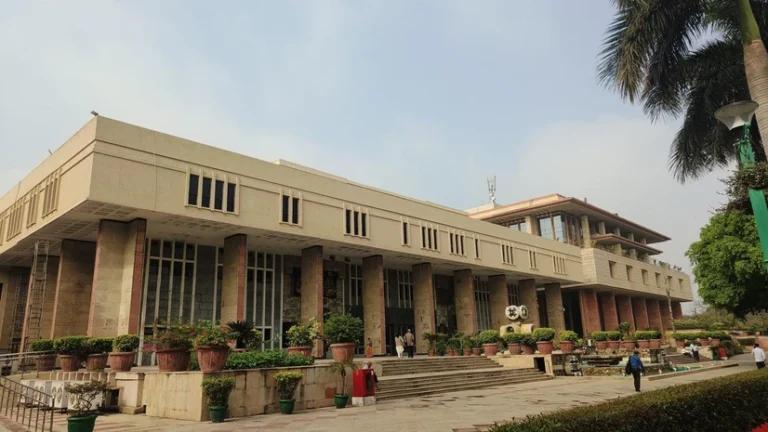The Delhi High Court has dismissed a revision petition filed by Sandeep Kumar, a tenant of nearly four decades, against his eviction from a shop in Chandni Chowk. The case — Sandeep Kumar v. Nihal Chand (RC.REV. 292/2017) — was decided by Justice Saurabh Banerjee, who upheld the eviction order passed by the Additional Rent Controller (ARC) back in April 2017.
Background
The dispute centers around a tiny but valuable commercial space — Shop No. 2A, Ground Floor, 682, Katra Hira Lal, Chandni Chowk — where Sandeep Kumar (tenant) carried on business for years. The landlord, Nihal Chand, had purchased the premises in 1985 and claimed he needed it for expanding his business.
The landlord argued that his existing business of cotton fabric and mink blankets was declining. He wished to start a new venture dealing in sarees, lehengas, gowns, and other dress materials — for which he required the additional shop space. He already possessed two adjacent shops, but said they were insufficient for his new retail venture in an area that had shifted from wholesale to retail trade.
The tenant, however, maintained that the landlord had multiple other commercial properties and was only trying to oust him under the guise of “bona fide requirement.” He argued that the premises were part of a predominantly wholesale market where selling sarees would not even make commercial sense.
Court’s Observations
Justice Banerjee went deep into the intent and scope of the Delhi Rent Control Act, 1958, particularly Section 14(1)(e) and Section 25B — provisions that deal with eviction based on a landlord’s genuine personal need.
Citing precedents from the Supreme Court such as Sarla Ahuja v. United India Insurance Co. and Abid-Ul-Islam v. Inder Sain Dua, the Court reiterated that the “landlord is the best judge of his own requirement” and that the courts should not interfere unless there’s clear mala fide intent.
“When the landlord asserts that he requires the tenanted premises for a particular purpose, the Court is obliged to proceed on the presumption that such requirement is genuine and bona fide,” the judge noted.
Justice Banerjee also pointed out that merely because a landlord owns other properties does not mean he is barred from seeking eviction. The distinction between “additional accommodation” and “alternative accommodation” was crucial — the former meaning extra space to expand, the latter implying existing sufficient space.
“Merely because the landlord has other premises does not mean he cannot claim bona fide need,” the Court observed, adding that the choice of which property to use for business rests solely with the landlord.
The Court criticized the tenant for failing to provide any credible proof to support his allegations. “The tenant made bald assertions without substantiating evidence,” the judgment noted, holding that there were no triable issues warranting leave to defend.
Upholding the ARC’s order, the High Court concluded that the landlord’s requirement was genuine and that there was no illegality or perversity in the earlier decision.
“The issue of bona fide requirement stands well established in favour of the landlord,” the Court stated firmly.
The revision petition was dismissed, and the interim stay that had been protecting the tenant from eviction since 2017 was vacated. The tenant was directed to “forthwith vacate and hand over peaceful and physical possession” of the shop to the landlord. Additionally, he was instructed to clear any arrears of user and occupation charges before vacating.
Case Title: Sandeep Kumar v. Nihal Chand
Case Number: RC.REV. 292/2017 & CM APPL. 45944/2019















